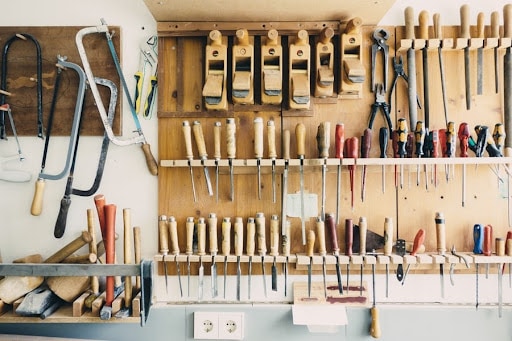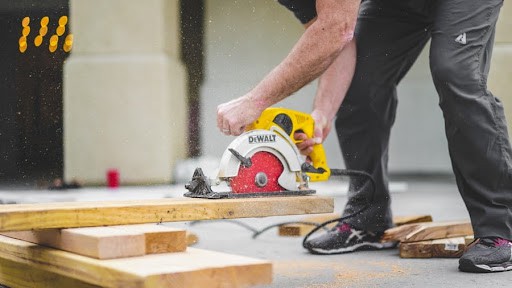Whether you’re a professional tradesperson or a home DIY regular, you’ll likely have a variety of tools. Everything from a screwdriver to a large digging drill can be used and stored by just about anyone. While these tools are super useful, they can also be extremely expensive.

So, if these tools are really expensive, you don’t want to damage, break, or lose them. Replacing tools regularly could cost you a lot of money. It’s best to make them last as long as possible. Let’s take a look at a variety of hand and power tools, as well as how to make them last as long as possible.
Types Of Tools
Contents
If you’re at home, you’ll likely have a selection of tools. Most of us have a box or case full of screwdrivers, wrenches, hammers, mallets, and a whole load of other tools. These can be useful for the home. Whether you’re doing a spot of DIY or helping rebuild parts of your home, you’ll have a selection of these stored in your garage or basement.
More advanced tools are also available and useful to both home users and tradespeople. Nowadays, you can get powerful drills, disc saws, and other types of power tools that are battery or mains-powered. These tools are obviously far more powerful; some of them really pack a punch! These are the super expensive tools that you don’t want to have to replace regularly. Here are some top tips on keeping them safe and in good working order for the long term.
Store Them Properly
First off, you need to store your tools properly. Chucking them all into a toolbox with little care can lead to tools bumping against each other and chipping, snapping, or breaking completely. If tools come with protective casing and storing boxes, you should keep them inside these. They are designed for specifically this reason.
Outside of the toolbox, storing them in a safe area is also important. Placing them on damaged shelves or out in the cold can be detrimental. Instead, opt for a proper garage or storage area. If you’re interested in a self storage container for your tools, you can learn more at QuickSelfStorage.co.uk. These storage bays provide safe and secure storage for your power tools, keeping them away from anyone who may knock or drop them, making them safer than they could be at home or in a vehicle.
Keep Them Clean
Another important thing is keeping your tools clean. Dirty tools become inefficient. Imagine trying to use a flathead screwdriver that is caked in paint and dirt – it simply won’t fit in the desired screw! So, clean tools are more efficient.
Dirt, though, can do more than make tools slightly less useful. Grime and build-up on tools can also cause rust and other long-term damage. This can render tools completely useless, meaning they need to be replaced or deep-cleaned to ever work again. Keeping tools clean will 100% help in making them last a really long time.
Types Of Tools

Inspect For Damage
Many tools take a heavy load. Whether it’s a power drill, disc cutter, or simple wrench, you’ll put a lot of power through your tools. After each use, you’ll need to take a little look at all of your tools and make sure there are no damaged, chipped, or twisted parts. These damaged parts, if left unattended, can lead to much more severe damage.
This damage can lead to tools failing and breaking. Not only does this mean you’ll have to replace them, but it can also be dangerous. If a drill or other tool fails under high pressure, you could end up severely injured.
Replace Damaged Parts
So, if you spot any damaged parts, what should you do? Well, firstly, it depends on the tools. If a screwdriver has a small chip, you can simply monitor it. If a wrench has a snapped edge, it’ll probably need discarding. In a more complex tool like a power drill or lathe, you can simply assess and replace the damaged parts. Make sure to seek advice from a hardware store or other trade professional if you don’t understand how to repair your tools.
Use For Correct Purpose
Finally, you need to make sure you always only use tools for their intended purpose. Sometimes it can be tempting to grab a tool to try and wedge a door or snap some old fixings, but this can be very dangerous to you and the tool. If you are not using a tool for the right reasons, it can bend, break, or cause you physical harm. Using a tool safely will ensure it lasts a long time.
These tips will help you keep your tools safe, organised, and ensure they are long-lasting. Store them properly and protect them from the elements, while only using them for their intended purpose. Your tools will be more efficient and they will last a lifetime!